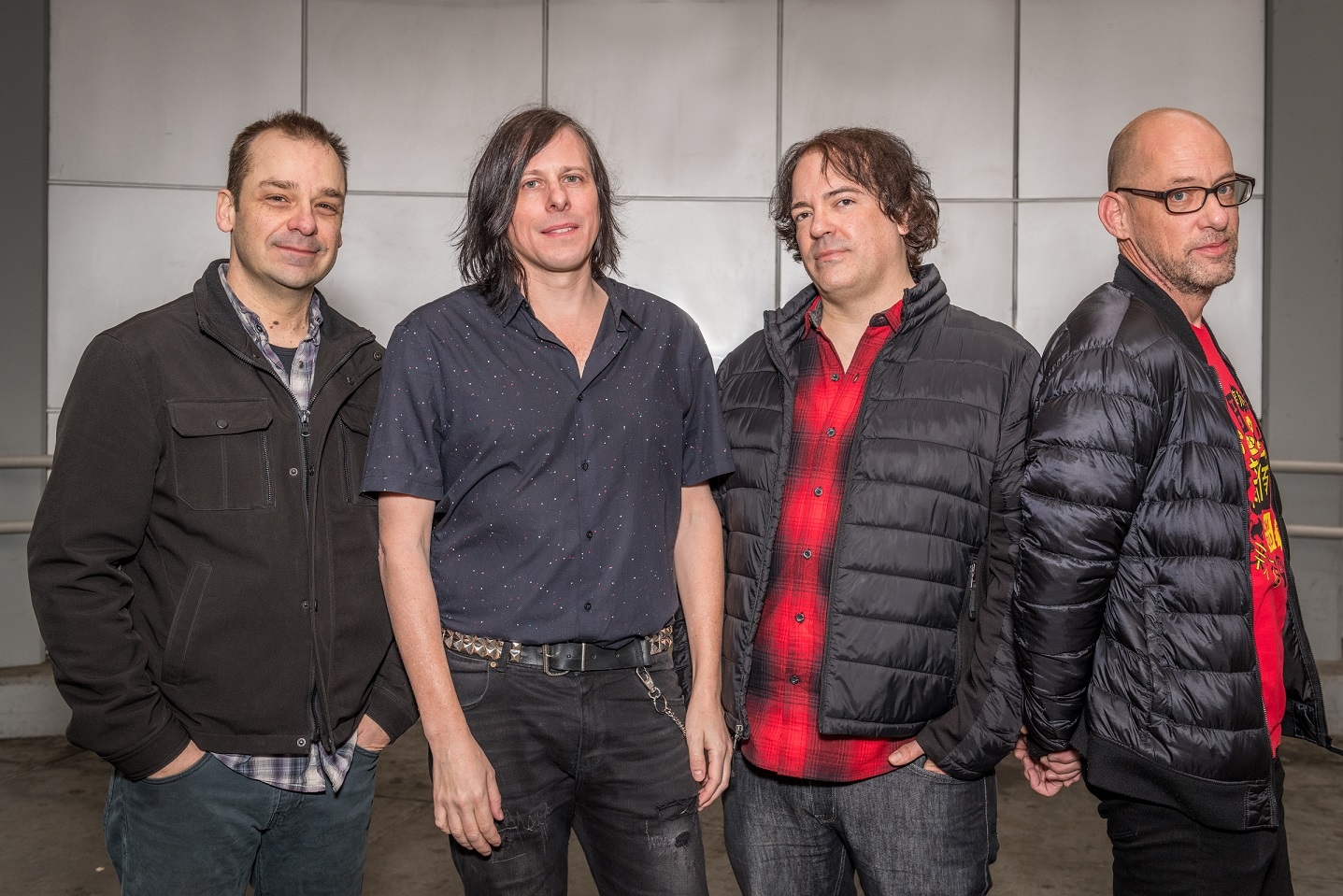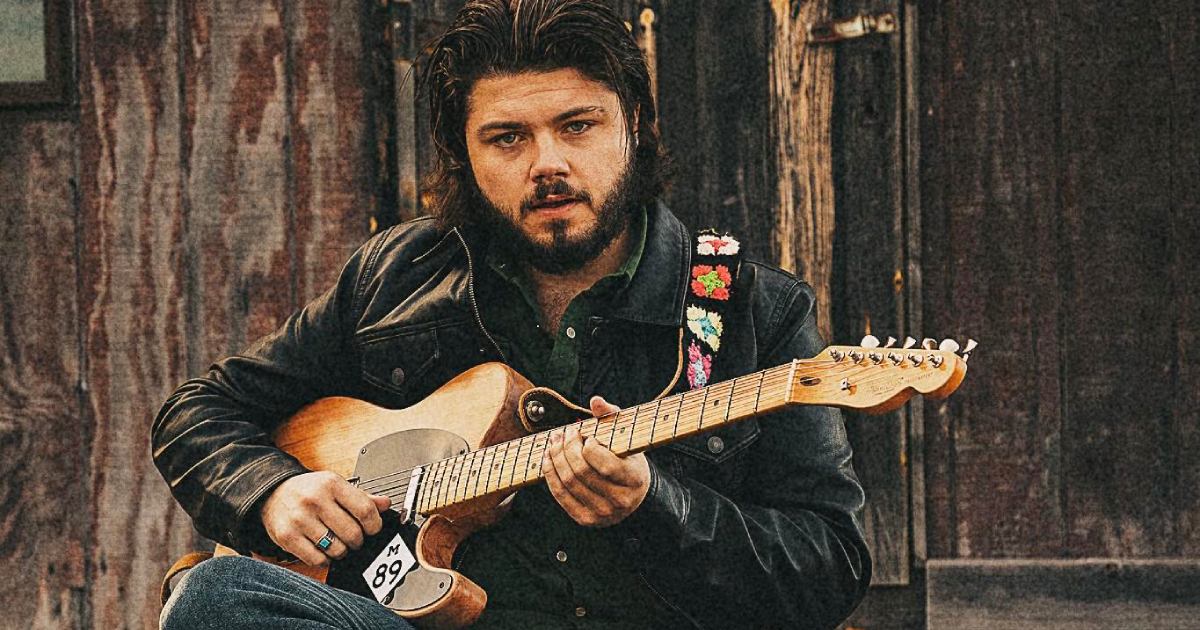It’s been 30 years since the Posies unveiled its majestic brand of poppy alt-rock with the release of Failure, the Seattle-rooted band’s debut LP.
Today, after eight studio albums and a pile of singles and EPs, the band — led by guitarists/songwriters Ken Stringfellow and Jon Auer — are not only embarked on a 30th Anniversary tour, but also gearing up for a series of vinyl re-issues of their ’90s-era albums, originally released via DGC Records.
This year, Omnivore Recordings (the same label that re-issued Failure in 2014) will drop the band’s major-label debut Dear 23 on June 29, Frosting on the Beater on Aug. 24 and then — the final DGC-issued LP — 1996’s Amazing Disgrace hits stores Nov. 2.
It’s another busy year for the Posies, who headline June 21 at Bell’s Brewery, but that’s nothing new for Stringfellow — an always-working freelance musician with a resume that includes ample time with R.E.M. and Big Star, to only name a couple. In between sessions, Stringfellow recently cut out time to chat with REVUE about the Posies’ milestone year.
REVUE: Tackling this many reissues at once is a lot of work, did you and Jon plan for all this to land on the 30th anniversary?
Ken Stringfellow: To be honest, with the re-issues of our ‘90s Geffen albums, we’ve been working on that for about four years now. It happened to work out that this year is the year we finally got the wheels to turn. It takes a long time to work with Universal on these things. It’s just not a priority for them—to give this music to some other label to put out on vinyl is not as interesting for them as it is for us. At this point, in 2018, they feel like if they get the music on streaming services that they’ve done their job—they don’t see the point in re-pressing CDs and vinyl—it’s too much of a niche. If it’s big names like Guns n’ Roses, they’ll keep that in print.
The Posies signed with Geffen back in ’89, when DGC was still a new imprint—how did that go down?
At that time, Seattle was the place. That’s where the most vibrant music scene was happening, so that’s where the labels were looking. We had a number of labels coming to talk to us. We put out our first album as a cassette, our album Failure. It was self-released and we managed, without trying—by a fluke, to get on commercial radio in Seattle. That was very unheard of.
Sub Pop Records [which still had Nirvana on its roster] had just took off in 1988, but that music wasn’t something commercial radio would play yet. It was a little too punk. Our music was cheerful and had pop melodies. It just fit with the commercial alternative radio station—they played the crap out of it. We released Failure as a proper album and lots of commercial stations picked up on it, like 93-XRT in Chicago, Live 105 in San Francisco and 99-X in San Diego. We had a fully independent album on commercial alternative radio—which was becoming the mainstream.
After that, labels started to come to us because we were kind of a proven thing—we could get on the radio without any push. We had meetings with all the different labels. Gary Gersh, who signed us to Geffen, signed Sonic Youth at the same time. He told us, “I’m basically forming this new imprint on Geffen called DGC, and it’s going to be for alternative music. I’ve got Sonic Youth, I’ve got John Doe, and I want you guys.”
A year later, Nirvana famously signed to DGC, as well. Do you recall hearing how that happened?
It was Sonic Youth and us who brought Nirvana to Geffen’s attention as the band they should sign. We never played shows with Nirvana, but we shared a sound engineer, Greg Montgomery, and we shared equipment. They routinely lent us equipment when we needed it. Before Nevermind blew up, Nirvana didn’t have a rehearsal space in Seattle because they all lived in different cities. They didn’t need a permanent one because they were on the road so much— so they’d use our space when they needed it.
Over the past few years, the Posies have taken up new digs overseas—why did that happen?
After I got married in 2003, I started spending most of my time in France. Then, Jon got married in 2012, and he started spending his time in France. It didn’t affect us as profoundly as you might think, other than philosophical ways — having a different viewpoint on life in general. For me, moving out of Seattle was an interesting choice in personal development. With the life I was living in 2003, touring with R.E.M. and hanging out with movie stars, it was time for a change. I needed something more grounding. I needed a fresh prospective that was more of a challenge. I always love a challenge, and moving to a country where I didn’t speak the language, or know many people, was kind of cool. Then we had a child, all the stuff that came with it was cool. So, in terms of personal growth it was very helpful and kept my ego in check.
You work as a producer for hire and sideman, as well—does that ever hinder your own songwriting?
I don’t think so. First of all, there is no guarantee I will have work. As a freelancer, we all know how that goes. Sometimes there is nothing and I’m free to work on my own stuff. I figured that will take care of itself naturally. If I think, “OK, I want to make a solo album this year,” of course, I will focus on that and choose not to work on other peoples’ stuff. In many ways, all the production work I’ve done has been a great boom to my Posies and solo work because I’ve become so much more adept at using the studio and equipment and getting a record from concept to finished product. I am well versed in that process now, having made hundreds of albums. I like the interaction with other people, because making solo music, it’s easy for me to stay in my studio alone and do stuff. It’s almost too easy in a way that’s not too artistic. I have my studio like a painter has their studio and I’m free to work and pursue my own ideas—but I like collaborating. I think it’s much more interesting.
The Posies’ 2016 LP, Solid States, I recall that you approached the production of that in an atypical fashion, correct?
I did almost all of my parts in my studio, without face-to-face interactions with Jon, but that was OK because we had a goal and knew what we wanted to do. I would send him stuff, and he would send me stuff — we worked back and forth. It had a structure, but it just wasn’t the way we’d done records in the past. Then Frankie, our drummer, has a studio as well, I went there and did some work. It’s nice to work with your bandmate in the same room (laughs). That’s how we’d done our records up to then, but things were different. Two of us moved to Europe, the band had changed, our drummer (Darius Minwalla) died — =a lot of freaky stuff happened. We found ourselves working in a new way and completely loved it.
The Posies
w/ Terra Lightfoot
Thursday, June 21
Bell’s Eccentric Café
355 E. Kalamazoo Ave., Kalamazoo
bellsbeer.com/eccentric-cafe
$20, 21+





